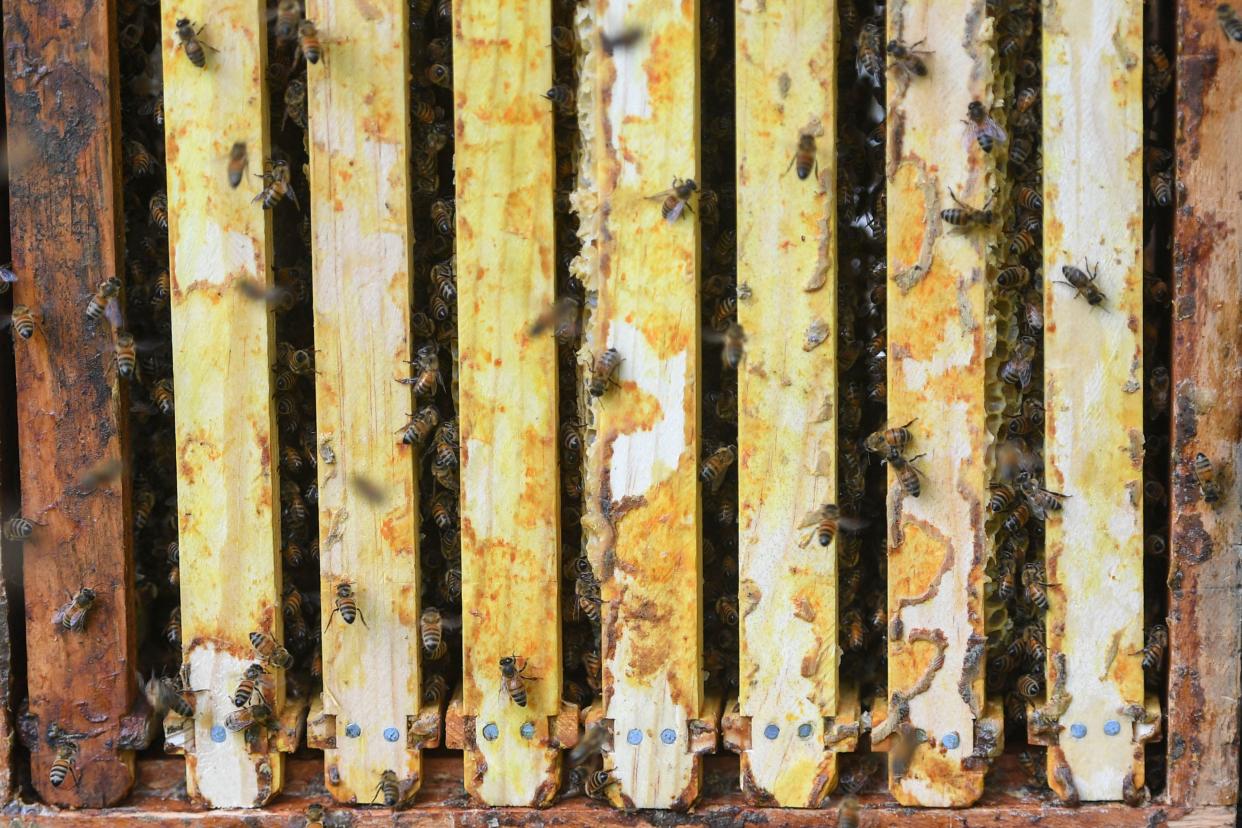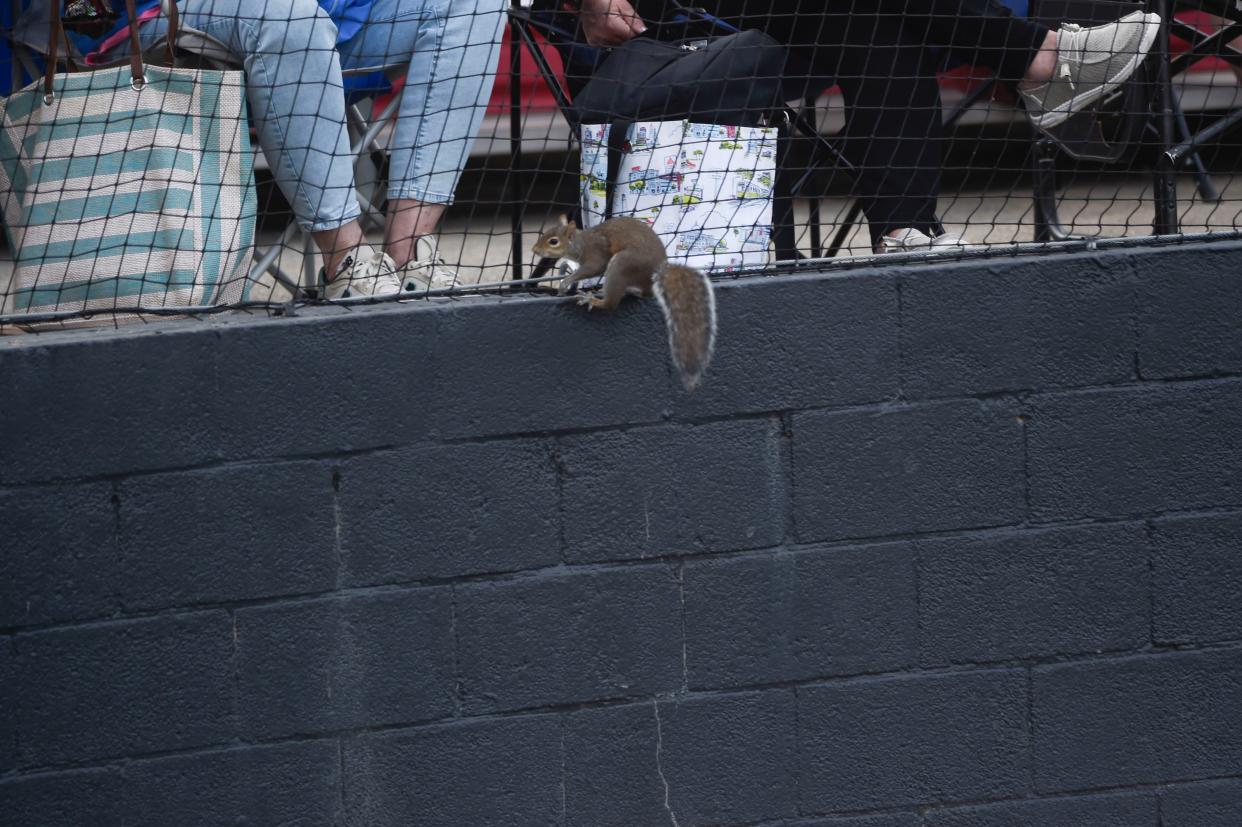From fire ants to squirrels: Critters are on the move with the rising temperatures in Augusta

As spring approaches, warmer weather triggers the flowers to bloom and insect pollinators begin to make an appearance along with a host of other species.
“We tend to see a lot of species that were held up waiting on the weather to warm up,” said Campbell Vaughn, agriculture and natural resources agent for the University of Georgia Richmond County Extension Office. “The biggest thing we're seeing now is pollinators popping up everywhere.
“Last week, I saw four or five different folks posting pictures of honeybee swarms. Solitary bees are coming out of the ground and are out pollinating. Soon we’ll start to see some migratory birds. For instance, hummingbirds will start working their way up to where the red buckeyes are blooming.”
Campbell Vaughn: Saucer magnolias are starting to bloom and they are showstoppers
The red buckeye is a native plant that grows beneath the canopy of forests in Georgia's coastal plain and lower Piedmont, according to experts with the Georgia Department of Natural Resources. The spring bloomer is a magnet for ruby-throated hummingbirds, which is the major pollinator of the red buckeye.
“It's really interesting how different species follow blooms,” said Vaughn. “They’ve evolved to know when the weather starts to warm up. They know it’s time for flowers to bloom.”

Furry critters on the move
There are two separate peaks of breeding activities in both gray and fox squirrels in Georgia. The first breeding time is in late winter and the second occurs in late summer. Not all females will raise two broods a year.
The average female rat has four to six litters per year and may successfully wean 20 or more offspring annually, experts say.
For mice, a single female may have up to five to 10 litters a year, each litter having about five to six young.
“Deer will start to drop fawns in the next three weeks,” said Vaughn.
“You may start to see a whole lot more bats,” he said. “Bats kind of like to hibernate. They prefer warmer temperatures. The reason they like to hibernate is because of self preservation. The ones we have around here are big insect eaters. So when it cools down, insects aren't as available. Bats expend a lot of energy flying. So when the insects are coming out more and more, as it starts heating up the bats start coming out.”
Arachnids and insects out and about
“Spiders tend to stay busy year round,” said Vaughn. “Usually they're getting into structures a lot during the wintertime to nest. Structures tend to be a lot warmer. Big ones like the Jorō spider will be coming out.”
“Fire ants are going to start emerging now that it’s warming up,” said Vaughn. “I would say that fire ants are the biggest pest because they bite and are plentiful.”
“The scale insect is an exotic insect,” he said. “Those are parasitic insects that'll start moving around and up in the trees soon. They’re pests because of the harm that they cause trees. Scale insects feed on a wide range of plants, trees and shrubs. They feed by sucking plant sap through their long, needle-like mouth. Many also excrete sticky honeydew which supports the growth of sooty mold.”
This reporting content is supported by a partnership with several funders and Journalism Funding Funding Partners.
Erica Van Buren is the climate change reporter for The Augusta Chronicle, part of the USA TODAY Network. Connect with her at EVanBuren@gannett.com or on X: @EricaVanBuren32.
This article originally appeared on Augusta Chronicle: Spring time equals warmer temperatures, flowers in bloom, creepy bugs
